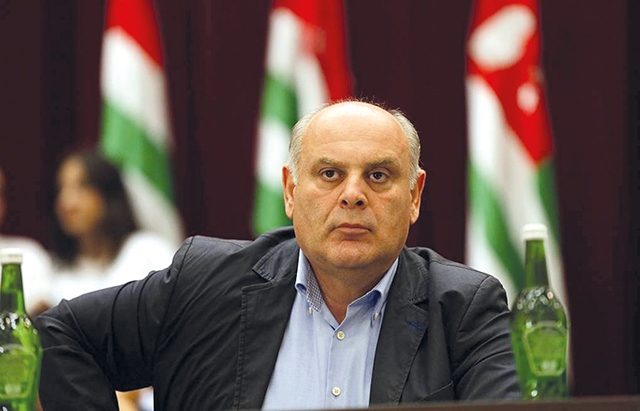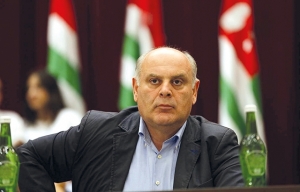All in a Name
Op-Ed
The revolutionary urges have slowed as quickly as they emerged. Nobody knows where ex-de-facto President Raul Khajimba went after the “fatal” day of January 13, and no one’s really interested. Instead, the locals are focused on the hero of that same day, Aslan Bzhania, and his scandalous statements. In his interview with Georgian media, he talked about the need to initiate direct dialogue between Tbilisi and Sokhumi.
“It doesn’t matter in what format, it is foremost important that we listen to each other,” he told Interpressnews.
This statement came like lightning out of the blue, and yesterday’s hero quickly became today’s traitor. What did they not say about Bzhania, from the ending of his surname to his non-aggression pact. Union of Veterans ‘Aruaa’ accused Bzhania of disregarding the 1992-93 war. “Until a non-aggression pact is signed and while Georgia denies the pretentions it has and refuses to recognize the statehood of the Abkhazian Republic, political dialogue is out of the question”. Then came an analysis of Bzhania’s surname: “The surnames of our presidents – Ardzinba, Baghapsh, Ankvab, Khajimba – never end with ‘ia,’ and nor should this tradition be violated,” some wrote on social media.
The fact that this issue was stressed once again shows the perspectives of a Georgian-Abkhazian dialogue. However, it is notable that the Abkhazian endings of surnames have never brought anything good to de-facto presidents: quite the contrary. For instance, neither his surname nor being an ally of Russia helped the first “president” of occupied Abkhazia, Vladislav Ardzinba, just as in the cases of his successors. Ardzinba died unexpectedly, as did the second president Bagapsh. Alexandre Ankvab was a bit luckier, surviving five political assassination attempts.
The surname didn’t help Khajimba either, as, despite being very stubborn, he was still forced out of office. So perhaps the Georgian sounding “ia” ending will actually prove a good sign for the future “president,” and, in fact, all the alleged candidates at the moment boast the same ending: Bzhan-ia, Khazar-ia and Kvitsin-ia.
There were responses to Bzhania’s statement in Tbilisi too, where it caught the interest of the circles involved in export, no, not interest- it would be better to say suspicion: suspicion as to why the political elite of Abkhazia raised the issue at all. The opinion of the government and experts divided mainly around the possible dialogue format, the response of the Chief of Security was the most surprising: “We have the Geneva format, where we are discussing all the pressing issues and, of course, if [Bzhania’s] initiatives are raised within the format, we will discuss them actively,” said Khojevanishvili. It was a practical refusal to the Abkhazian signal rather than an agreement, once again proving that the Georgian Dream has no masterplan with regards to the occupied territories. Ex GD Minister Paata Zakareishvili, said: “I don’t think the Georgian government will use this opportunity. The State Security Service representative has already answered, saying we should talk in Geneva. This answer was incorrect. If we want to start any relations with Abkhazians, we should not be answering in an arrogant manner. We do not regard the Abkhazian party as equal...because Russia tells us to talk directly to Abkhazians and Ossetians, it is unacceptable for us. But why should we be interested in what Russia say? Often, Russia says what should not happen: it is completely out of the Russian interests that we start such a dialogue. What Russia wants in reality is to isolate Abkhazia and we are aiding them in this,” he said.
Who will start the dialogue with Tbilisi from Sokhumi, if it happens at all, will be revealed on March 22, when the Abkhazian’s choose the de facto president. Regardless of who will come to office on the occupied territory, whether for or against the dialogue with Tbilisi, they will not start real negotiations because they know that the issues for real negotiations can only be the following: return of the IDPs and the determination of the status of Abkhazia according to the Constitution of Georgia. Hence, despite the constant unrest, the separatists will be sticking to their lives in “regulated chaos” provoked by Moscow, rather than clearing up relations with Georgia and putting into question their “historic victory” (as they call it) gained with the support of Moscow in 1993.
By Zaza Jgarkava
Image source: jam-news.net












